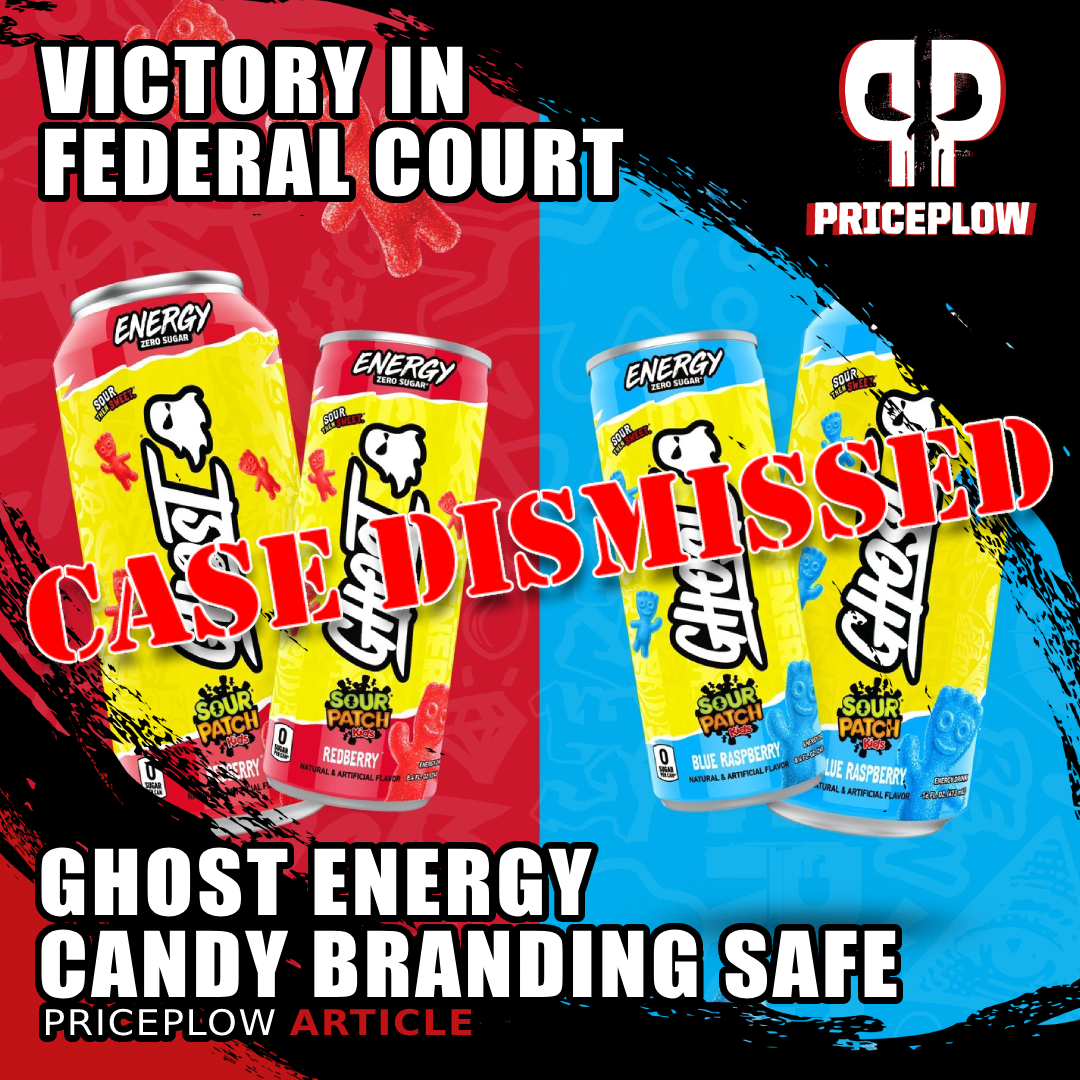
Court docket dismisses lawsuit in opposition to GHOST Vitality for candy-themed branding. Decide guidelines no affordable client would suppose Bitter Patch Children drinks are for youngsters. Main business win.
In a large authorized victory for GHOST, a federal decide has dismissed a class motion lawsuit that claimed the corporate’s power drinks deceptively marketed merchandise to youngsters through the use of candy-themed branding.
The ruling represents a serious win for the beverage business and clarifies essential rules about trademark licensing and client safety legal guidelines. Additional, it establishes that meals and beverage firms can license sweet manufacturers for grownup merchandise with out risking legal responsibility for implying these merchandise are appropriate for youngsters.
The Lawsuit: Sweet Flavors and Kids’s Advertising
The case, Barrales v. Ghost Drinks LLC and Mondelez Worldwide, Inc. (Case No. 1:24-cv-01185), was filed in federal court docket by two mother and father who bought GHOST Vitality Drinks for his or her youngsters.[1] The plaintiffs alleged that GHOST’s use of Mondelez-owned sweet manufacturers like Bitter Patch Children, Swedish Fish, and Bubblicious on their power drinks misled customers into believing the merchandise had been acceptable for youngsters.
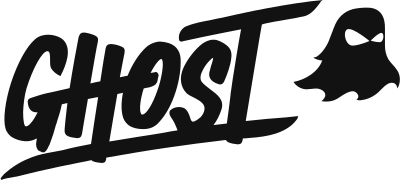
Join alerts on our Ghost information web page so that you don’t miss any information!
The lawsuit particularly focused the outstanding show of those sweet manufacturers on product packaging, claiming that the phrase “children” in “Bitter Patch Children” urged the drinks had been appropriate for youngsters, regardless of containing 200mg of caffeine per can — an quantity the plaintiffs contended was unsafe for minors. GHOST and Mondelez each fought the case, every submitting their very own motions for dismissal.[2-6]
An Upstart Model Turns into a Main Model and Defends the Trade
Since Ghost first licensed Bitter Patch Children and Swedish Fish in Fall of 2018, the model has skilled great progress, and this isn’t the primary time they’ve been focused for his or her advertising and marketing strategies. As followers of the PricePlow Podcast know from our conversations with Ghost CEO Dan Lourenço in episodes #116: The Meteoric Rise of Ghost Vitality and #143: Ghost Legend V4 and the Ghost 100 Yr Plan, these licensing agreements have been essential to Ghost’s spectacular trajectory, culminating within the firm’s current acquisition by Keurig Dr Pepper for $1.65 billion.
The Court docket’s Ruling: Widespread Sense Prevails
After oral arguments had been made on January 1, 2025.[7] Decide Martha M. Pacold of the U.S. District Court docket for the Northern District of Illinois granted the defendants’ motions to dismiss all claims, delivering a convincing victory for each Ghost Drinks and Mondelez on March 25, 2025.[8]
In her ruling, Decide Pacold emphasised that “no affordable client would interpret the position of a ‘Bitter Patch Children’ brand on an power drink to convey a message that the product is appropriate for youngsters.”[8]
The court docket rejected the plaintiffs’ core argument concerning the “children” reference in “Bitter Patch Children”, noting that “Bitter Patch Children is a family identify for a well-liked sweet model. Customers who come throughout a Bitter Patch Children-flavored product perceive that the Bitter Patch Children brand refers back to the Bitter Patch Children sweet.”[8]
Swedish Fish Aren’t Derived From Actual Fish, Are They?
In one of the vital quotable passages from her ruling, the decide said:[8]
“Simply as no affordable client would suppose that ‘Swedish Fish’ derives from actual fish, or that ‘Sugar Infants’ are protected for infants, no affordable client would attribute unbiased which means to the phrase ‘children’ isolating that phrase from the remainder and ignoring the truth that ‘Bitter Patch Children’ refers to a widely known sweet model.”[8]
Decide States Plaintiffs “Studying an excessive amount of into the packaging”
The court docket discovered that the plaintiffs had been merely “studying an excessive amount of into the packaging.”[8]
Broader Implications for the Trade
Decide Pacold’s ruling established a number of essential rules with important implications for the meals and beverage business:
-
Trademark Licensing Legal responsibility – Licensing Sweet Firms Not Liable
The court docket dismissed all claims in opposition to Mondelez (the proprietor of the sweet manufacturers), figuring out that merely licensing a trademark doesn’t make an organization chargeable for allegedly misleading practices by the licensee.
-
Sweet Branding Doesn’t Equal “For Kids”
The court docket explicitly acknowledged that “affordable customers perceive that {the marketplace} consists of candy-themed or candy-flavored meals merchandise that aren’t meant for youngsters, akin to candy-cane and cotton-candy-flavored liqueurs.”[8]
-
Client Information About Caffeine
The court docket acknowledged that “whereas affordable customers may not have a complicated understanding concerning the exact pharmacological results of caffeine on youngsters… affordable customers are conscious that caffeine, ‘probably the most utilized psychoactive stimulant worldwide’ could pose sure destructive well being penalties when ingested by youngsters.”[8]
-
Clear Caffeine Disclosures Matter
The outstanding show of caffeine content material on Ghost’s packaging was famous by the court docket as additional proof that customers wouldn’t be misled concerning the nature of the product.
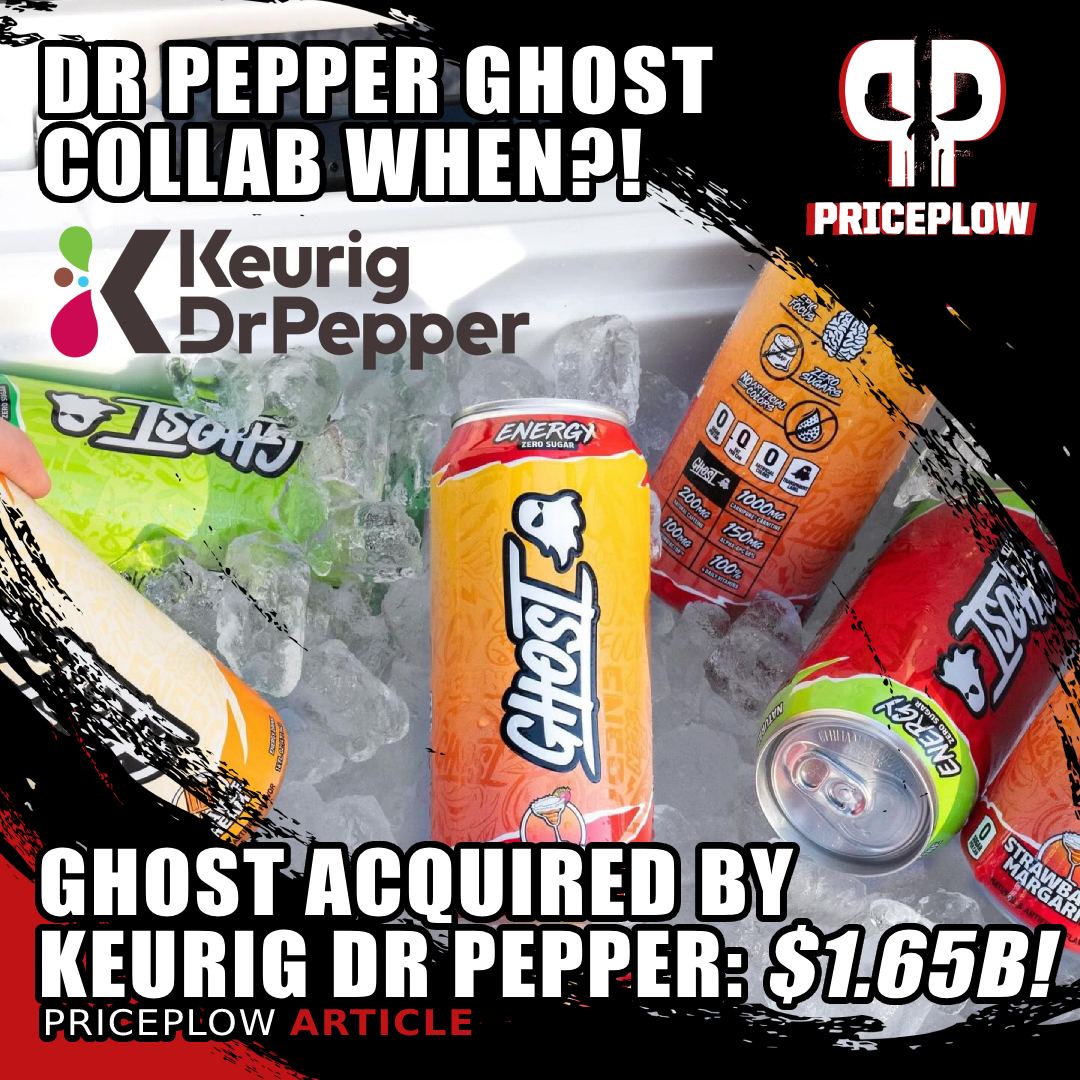

In a monumental flip of occasions, Ghost Way of life has been acquired by Keurig Dr Pepper in a deal value $1.65 Billion {Dollars}! Our solely query is, when’s the Dr Pepper power drink collab?!
Widespread Sense Judgment
Maybe summarizing the court docket’s perspective most succinctly, Decide Pacold famous that in client circumstances, “checking widespread sense on the door isn’t required”.[8]
What This Means for Ghost
This ruling represents a serious victory for Ghost, eradicating a possible risk to one in every of its most profitable advertising and marketing methods. The corporate’s trend-setting licensing partnerships with sweet manufacturers have helped it stand out within the crowded power drink market, and this choice successfully validates that method.
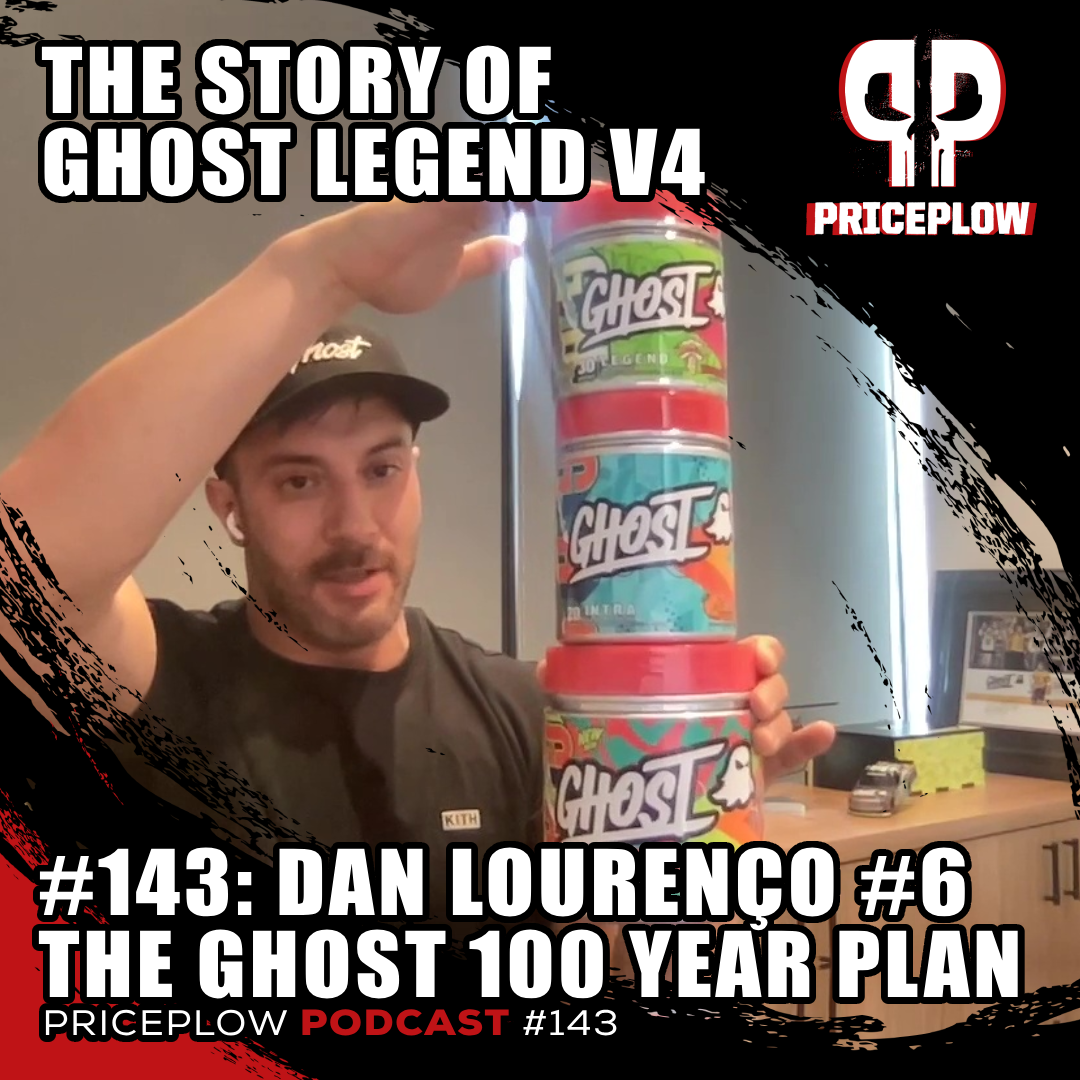

Dan Lourenço returns to the PricePlow Podcast for the sixth time to debate the Legend V4 launch, the primary half of 2024, and the Ghost 100 Yr Plan in Episode 143
The court docket has given the plaintiffs till April 22, 2025, to file a movement for depart to file an amended criticism, however given the great nature of the dismissal, it appears unlikely {that a} revised criticism would fare a lot better.
For customers who get pleasure from Ghost’s candy-flavored power drinks, this implies these merchandise ought to stay accessible of their present kind for the foreseeable future. And for the broader complement and beverage business, the ruling gives invaluable readability concerning the authorized boundaries of taste licensing and branding.
As Ghost continues to develop below Keurig Dr Pepper’s possession, this authorized victory eliminates one potential impediment to the model’s bold growth plans. For an business that incessantly makes use of taste licensing to create thrilling merchandise, the court docket’s commonsense method to client expectations represents a welcome improvement.
Keep tuned to PricePlow for extra up-to-date information on GHOST Way of life dietary supplements and power drinks — you’ll be able to join our Ghost information within the widget beneath:
GHOST Vitality Drink – Offers and Worth Drop Alerts
Get Worth Alerts
No spam, no scams.
Disclosure: PricePlow depends on pricing from shops with which we have now a enterprise relationship. We work exhausting to maintain pricing present, however you could discover a higher provide.
Posts are sponsored partially by the retailers and/or manufacturers listed on this web page.

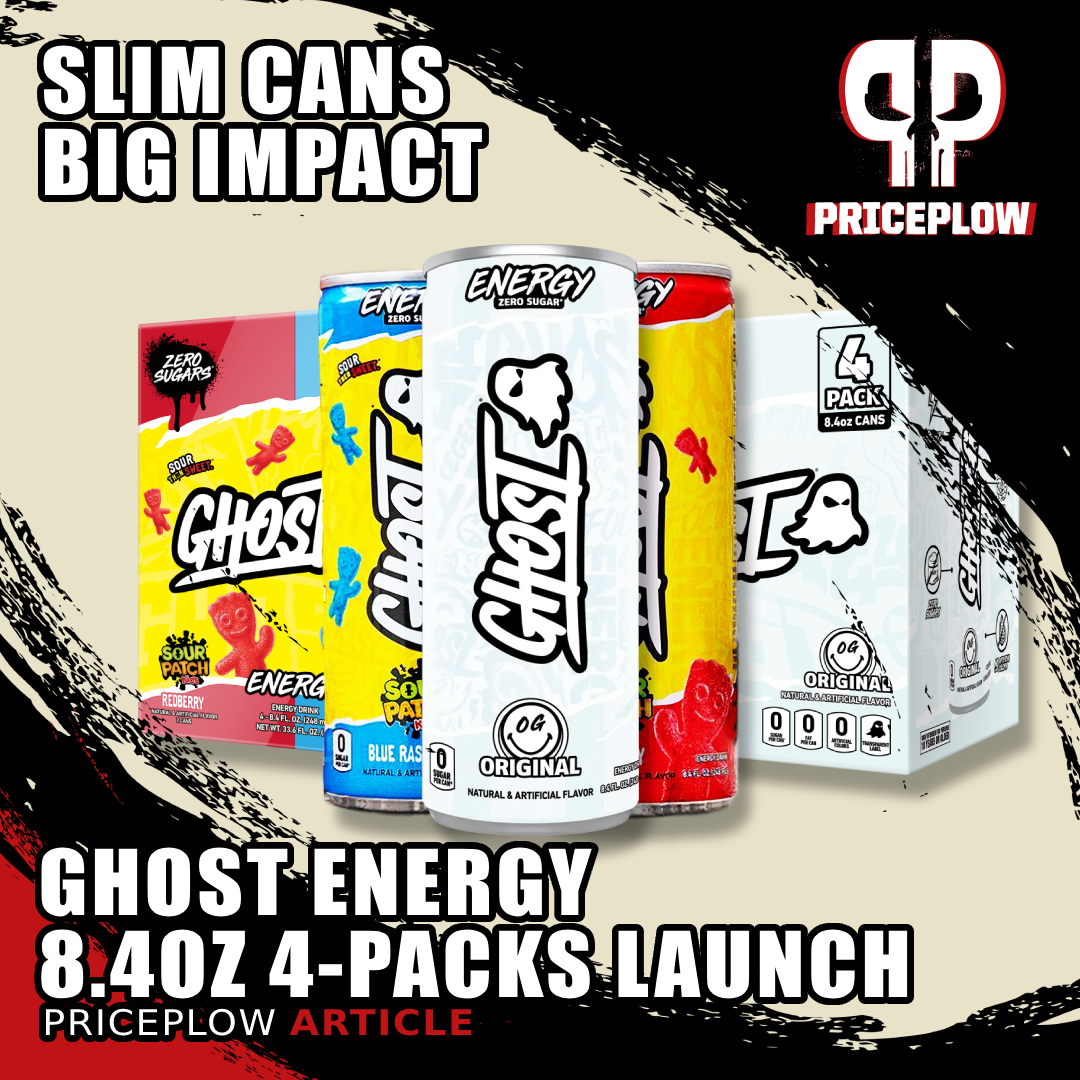








Discussion about this post